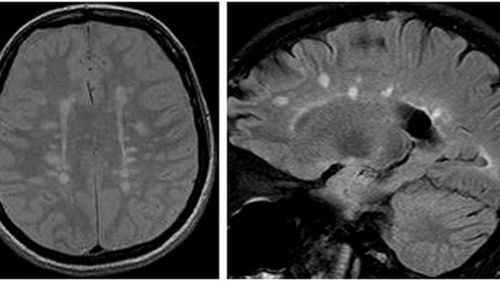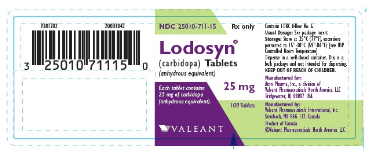This is an automatically translated article.
Multiple sclerosis (MS) is a disease that affects the central nervous system. In MS, the immune system attacks myelin, the tissue that covers the nerves, causing scar tissue or damage. That causes a variety of health problems, from movement and vision to memory and emotions.
1. Multiple sclerosis and its connection to the brain
Perception is one of the most advanced jobs that only the brain can do, like processing information, remembering information and solving problems.
Brain damage from multiple sclerosis can cause cognitive problems. About half of people with MS have cognitive changes. It can occur in any form of MS, but is more common in advanced MS at an exacerbation stage.
Interrupted brain signals caused by multiple sclerosis can make it difficult for you to:
Use appropriate language in certain situations: You may not be able to name names even though you know they are what. Remembering recent events: Suppose you might have no trouble remembering your teacher's name at school but forget the name of your new neighbor. Flexibility in handling situations: It can be difficult to multi-task. For example, the mind may be spinning when many people talk at the same time, unable to talk on the phone and cook dinner at the same time. Problem solving and planning: MS can affect judgment and planning. It is difficult for you to think ahead of the consequences of a particular action. Information processing: The ability to think and react more slowly. You cannot handle highly complex jobs. Assess size and distance: MS can affect the ability to define space and size. This may affect your ability to drive and read maps. SEE ALSO: Multiple Sclerosis Recommendations
2. Diagnosing brain problems associated with multiple sclerosis
People with multiple sclerosis should have a physical exam once a year or when there are abnormal changes in cognition.
In case you are having trouble with work, school, or your doctor notices cognitive changes, you need to see a neuropsychologist. They are experts in treating behavioral changes caused by illness or injury.
However, it's important to find professionals experienced in working with people with MS for proper diagnosis and treatment.
When you see specialists, you may need to take various tests over several hours to assess cognitive function such as memory, processing speed, problem-solving ability, etc.

Người mắc bệnh xơ cứng rải rác cần khám sức khỏe mỗi năm một lần
3. Managing cognitive changes due to MS
There is no specific drug to treat cognitive changes in MS . If you have recurrent MS, you may be able to receive disease-modifying therapy to prevent further damage or attend cognitive adjustment sessions. These measures can help boost your memory, your ability to focus, and your sense of space.
Here are some tips you can use to manage cognitive changes caused by MS:
Take notes: Put reminders, notes on your phone or on the wall of your home, office, or any other location. other conveniences. Good time management: Do the most mentally demanding tasks first, breaking large tasks into small chunks. Give yourself extra time to get things done on days when you're not at your best. If you're tired and can't concentrate, relax for a while. Cut out distractions like TVs and phones. Repeat the story: Repeating a small part of the story the narrator is saying will help you focus and remember better. Brain games: If you have trouble remembering names, use your visual and verbal imagination. For example, imagine a crown on a person named Mr. King. Make it a habit: Put your keys or phone in one place and get things in order.
4. How does MS affect mood?
MS can affect mood in many different ways. Scientists think damage to nerves in the limbic system, the part of the brain that controls emotions, may be to blame. In addition, MS medications can also affect emotions. Some of the emotional changes that can occur with multiple sclerosis include:
Sadness : You may feel heartbroken about the loss of life caused by MS. Depression: This is one of the most common MS symptoms that manifests as paleness or feeling hopeless, for at least 2 weeks. Anxiety and Fear: Because MS is a disease with symptoms that appear or change suddenly. This can make you anxious and scared. Stress: The stress of the day that MS flares up can make you feel worse. Mood swings, irritability, and anger: Living with MS and depression can lead to these emotions. Low Self-Esteem: Certain jobs that are no longer workable can cause you to lose confidence. These emotional changes are less common:
Happiness: Changes in the brain can create an unrealistic sense of happiness in a small number of people with MS. Can't control laughing or crying: About 10% of people with MS.

Bệnh MS có thể gây ảnh hưởng đến tâm trạng
5. Diagnosis and treatment of mood swings due to MS
You should see your doctor once a year to have your mood checked or if any unusual mood swings occur. Doctors or psychologists can help you in the following ways:
Prescribe medication, such as antidepressants to treat depression or anxiety. You will be closely monitored while taking the medicine. Cognitive behavioral therapy to help you recognize negative thoughts and replace them with positive ones. Establish a self-care routine so that when your mood drops, you can do things that make you feel better like bathing in a bubble, listening to music, or going on an overnight date.
6. MS and physical symptoms
In addition to causing memory problems and emotional changes, damage to the nerves in the brain caused by MS can also cause problems such as:
Optic neuritis : Manifested by vision blurred and painful eyes, which usually go away on their own. Dual vision: Can see one into two. Nystagmus: Rapid eye movements side to side, up and down, or in circles. Trigeminal neuralgia: Anything that touches your face can cause pain, even the simple act of brushing your teeth. For these problems, it is usually diagnosed through a physical exam or an MRI scan and is often treated with steroids and medications to stop seizures.
MS can also affect part of the cerebellum. When nerve fibers in the cerebellum are damaged, you can experience a number of problems, including:
Uncontrollable movements: Typical examples include tongue twisting when talking, hand tremors, difficulty balancing or weak limbs. There is no specific medication for uncontrolled movement. Instead, you can do strength training exercises, yoga, tai chi, or walking aids like canes to improve this condition. Hearing loss: Hearing loss affects only a small number of people with MS. Difficulty swallowing: Difficulty swallowing occurs when the nerves that control the muscles in the mouth and throat are damaged. It can be diagnosed through X-rays and observation of swallowing and chewing. Treatment is with changes in diet and eating patterns, along with swallowing exercises. Tremor: Damage to the nerves in the thalamus and basal ganglia, two organs that control movement, can also cause tremors. Surgery to disrupt nerve cells in the thalamus can help with tremors, but it is very risky. Multiple sclerosis (MS) is a disease that affects the central nervous system. Therefore, patients need to have regular health check-ups so that the doctor can give appropriate indications to avoid affecting cognition.
Periodic health check-ups help to detect diseases early, so that there are treatment plans for optimal results. Currently, Vinmec International General Hospital has general health checkup packages suitable for each age, gender and individual needs of customers with a reasonable price policy.
The patient's examination results will be returned to the home. After receiving the results of the general health examination, if you detect diseases that require intensive examination and treatment, you can use services from other specialties at the Hospital with quality treatment and services. outstanding customer service.
Please dial HOTLINE for more information or register for an appointment HERE. Download MyVinmec app to make appointments faster and to manage your bookings easily.
Reference source: webmd.com













